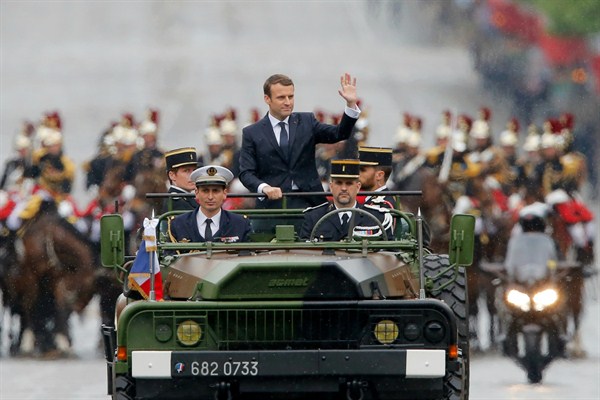During the campaign for this month’s presidential election, Emmanuel Macron, who was elected on May 7, was labeled an “extreme centrist” for his “neither-left-nor-right” paradigm. Establishing his En Marche party in 2016, he pledged to break from the political establishment, offering a platform to simultaneously boost France’s economy and maintain its social security net while strengthening the European Union. But many were skeptical, pointing to his role as economy minister during Francois Hollande’s unpopular administration, his degrees from elite institutions and, most nefariously, his background in investment banking.
So when he announced the members of his Cabinet on Wednesday, many of his toughest critics, particularly on the far left, were content to say “I told you so.” That’s because, as the Washington Post’s James McAuley put it, “Macron’s ‘radical centrism’ sure looks a lot like conservatism.”
Macron was an unknown quantity from the start, and his promise to defy the political mainstream was at once appealing and uncertain. Many voters worried that his centrism would veer to the right once he took office. And for some, his picks to lead the Economy and Budget Ministries—Bruno Le Maire and Gerald Dermanin, both staunch conservatives—seemed to confirm those fears. Le Maire and Dermanin are among Macron’s numerous appointees from the center-right Republican Party (LR), including his prime minister, Edouard Philippe. In particular, the appointment of Le Maire, whose economic policies are to the right of Macron’s, has generated criticism.

